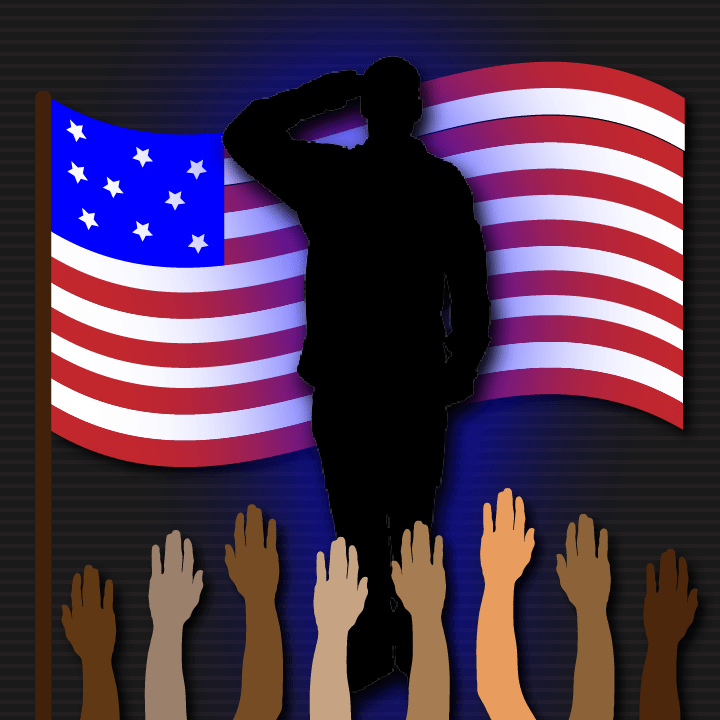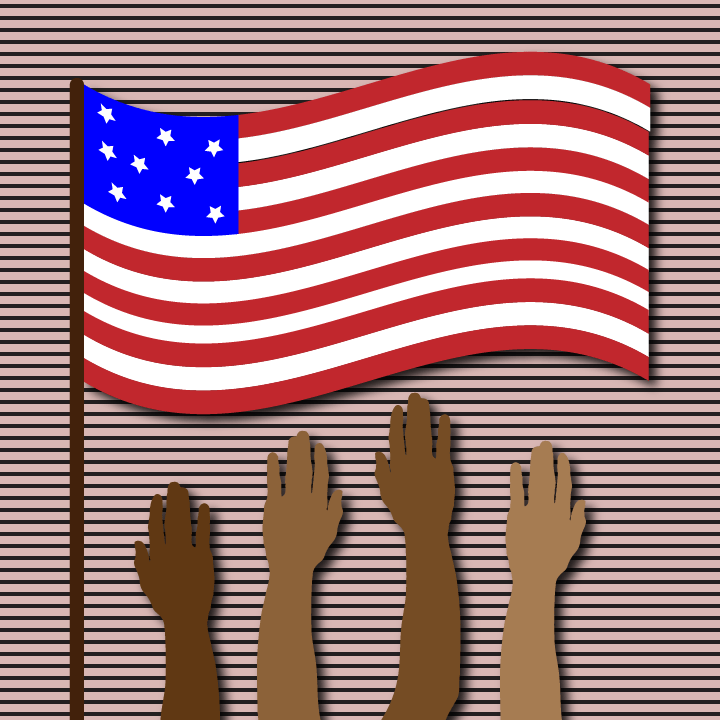By: Ally Brewster
Philadelphia is a place with a vibrant, bright LGBTQ+ community. The Covid-19 pandemic put a pause on many events last year, but that’s not the case this year. With places opening back up, with covid guidelines, Pride events are back!
See below for a list of some (but by no means all) of the pride events in and around Philadelphia, as well as across the river in New Jersey, during the 2021 Summer:
BFSC Family Pride Picnic & Pool Party – Wednesday, June 23
- Time: 5-8PM
- Location: Barclay Farm Swim Club, 315 Whitemarsh Way, Cherry Hill, NJ 08034
- Price: Tickets Will Be Sold At The Door: $20 Each Adult, $10 Each Child
- Description: Enjoy games, contests, door prizes, Mr. Softee and a dance floor! Snacks and non-alcoholic beverages will be provided. Bring your own picnic.
Pride Fashion Show! – Athleta & Ten Thousand Villages Virtual Event!– Thursday, June 24
- Facebook Live
- Time: 3PM
- Description: “Athleta x Ten Thousand Villages are partnering in support of Valley Youth House emergency shelters! LGBTQ+ and Ally volunteers will be modeling Athleta’s Pride month clothing collection along with fair trade accessories to raise awareness for our June donation drive for Valley Youth House’s LGBTQ+ services. All donated items will go into backpacks for LGBTQ+ youth experiencing homelessness.
- Needed items: Socks, bras, menstrual supplies, soap, underwear, pyjamas, blankets, stuffed animals, board games, keychains, journals, art supplies & coloring books, gift cards Drop off at Ten Thousand Villages or Athleta (Bryn Mawr and Glen Mills).”
Franklin Institute Family Pride – Saturday, June 26
- Time: 12:00-4:00 PM
- Location: The Franklin Institute 222 North 20th Street Philadelphia, PA 19103
- Price: Included with museum admission. Free for Franklin Institute Members.
- Description: Join the museum for an afternoon that blur the lines of science and performance! The Franklin Institute will partner with local drag queens for whimsical shows and dissections. It will be an afternoon of expressive coloring, roving demos, the science of bubbles and rainbows, photo-ops, colorful lights, and themed music for a community celebration!
Philly Pride! Make it Glow! – Saturday, June 26
- Time: 7:30 pm to 9:30 pm (Arrive 15 minutes early)
- Location: 209 Leedom Street in Jenkintown Borough, PA 19046
- Price: $38-$47 per person
- Description: A night of painting with pride with your instructor Jay! A small class size. Reservations are required prior to arrival. The studio is BYOB, so you can bring your own food and drinks (wine, beer, soft drinks, no hard alcohol. Alcohol for ages 21+).
Pride Storytime – Saturday, June 26
- Time: 10:30 AM
- Location: 175 W Valley Forge Rd, King of Prussia, PA 19406-1851, United States | King Of Prussia
- Description: Join Parker Edge at the UMT Park by the Gazebo @ 10:30AM for a pride-themed Storytime & activities!
Queering Wood Craft Virtual Event!- Saturday, June 26
- Live on Zoom, hosted by The Center for Art in Wood
- Time: 7:00-8:30 PM EDT
- Price: Free! (With a suggested donation of $5 per person enables them to provide programs and exhibitions throughout the year).
- Description: “Independent scholar and curator John-Duane Kingsley will lead this roundtable discussion with leading queer woodworkers and artists in wood, sharing the ways their lived experience impacts their craft, process, and aesthetic. Join us for an enlightening and fun evening. The Center for Art in Wood interprets, nurtures, and champions creative engagement and expansion of art, craft, and design in wood to enhance the public’s understanding and appreciation of it.”
Upper Darby Pride presents Drag Queen Story Hour and Potluck – Saturday, June 26
- Time: 12PM
- Location: Sellers Park, PA
- Description: “Join your friends at Upper Darby Pride for an early afternoon of friends at Upper Darby’s history Sellers Park and Playground. Bring snacks and food to share with your group. Enjoy storytime with one of UD’s own drag queen readers, a great family friendly event for Pride Month 2021!”
LGBTQ+ Themed Children’s Story Time @ Perkasie Borough Farmer’s Market – Saturday, June 26
- Time: 09:00 AM TO 12:00 PM
- Location: Perkasie Farmer’s Market, 1 S 7th St, Perkasie, PA 18944
- Price: On the grassy area close to the Shelly’s Design Center sign at the corner of 7th & Market.
- Decription: There will be blankets to sit on, a table display of Children’s picture books with LGBTQ+ inclusive themes and a pride themed picture book list that can be used to add to your personal library.
Upper Darby Pride Festival – Sunday, June 27
- Time: 1:00-7:00PM
- Location: Upper Darby High School, 601 N Lansdowne Ave, Drexel Hill, PA, 19026
- Description: Attendees are required to wear face masks! Activities fun for all ages! There will be specific kid-friendly activities, vendors, music, opportunities to help fund our mural arts program, and much more.
Pride Power Flow – Sunday, June 27
- Time: 12:00 PM TO 01:00 PM
- Location: Eagleview Town Center, 565 Wellington Square, Exton, PA 19341, Exton, United States
- Price: Approximate price $20
- Description: Hosted by Blue Buddha healing arts. Join Krystal in a day of power and strength building yoga while supporting the LGBTQ+ community. Rainbow clothing encouraged! A portion of the proceeds from this event will benefit the Trevor Project!
Our City, Your Orchestra: William Way LGBT Community Center – Monday, June 28
- Time: 7:00PM
- Location: One South Broad Street | 14th Floor Philadelphia PA | 19107
- Description: “The first season of Our City, Your Orchestra culminates with a visit to the William Way LGBT Community Center in celebration of Pride Month in June. The William Way Community Center encourages, supports, and advocates for the well-being and acceptance of the LGBTQIA+ community of Philadelphia through service, recreational, educational, and cultural programming. Music Director Yannick Nézet-Séguin will be joined by GRAMMY-winning composer and Philadelphia resident Jennifer Higdon and members of the Orchestra.”
History Talk: Before Stonewall, Before Gay Pride, there Was Philadelphia Virtual Event!–Wednesday, June 30
- Zoom event (registration required)
- Time: June 30, 2021 7:00 pm– 8:30 pm
- Description: “William Way LGBT Community Center curator Bob Skiba will present on the history of the Philadelphia LGBTQ movement while placing it in a national context of LGBTQ history. This hour long illustrated presentation begins by examining what it was like to be queer in 1950s and 1960s America, an America where anyone who was at all different was demonized, medicated or arrested. It continues with Philadelphia’s response to this relentless oppression – the annual Reminder demonstrations that occurred every 4th of July from 1965 to 1969 in front of Independence Hall, the first organized, regularly recurring protests for gay rights in the country. Finally, it tells how the Stonewall riots changed that paradigm for good, morphing those Annual Reminders into and Gay Pride marches and giving birth to the modern LGBTQ movement.”
In Honor of: GAY PRIDE on The Farm – Saturday, July 17
- Time: 10 am – 5 pm
- Location: The Farm. 130 Mill Road, Evesham, NJ 08053
- Price: Free entry. Drag Queen performances by ticket only ($15-$30).
- Description: Activities include Craft Show/Vendors/Food. Drag Queens performing in the evening (by ticket only). Your Hostess will be Ariel Versace. With her will be Chasity St. Claire, Kali Coutour, Zephyra Rivers, Stefani Steel & Vickie Versace.
Bucks-Mont Pride Festival – Sunday, July 18
- Time: 1-6PM
- Location: Abington Art Center – 515 Meetinghouse Rd, Jenkintown, PA 19046
- Description: “SAGA is proud to partner with several local organizationsto bring the first annual PRIDE Festival to Montgomery County, PA. Enjoy live music, food, community resources, family-friendly activities, and more at this free, outdoor event!”
Philadelphia Pride – September (date TBD)
- After recent backlash of transphobia and racism, the group that has planned Philadelphia Pride in the past has dissolved (see more information from the Philadelphia Inquirer). Due to this, according to Abdul-Aliy Muhammad per the Philadelphia Inquirer, black and brown LGBTQ+ organizers of the local community are beginning to work on a more inclusive, accepting event in its place this September.
New Jersey Gay Pride Day – Sept 12
- Time: 12:00 pm – 6:00 pm
- Location: Cooper River Park. GPS users: Use address 7001 N. Park Drive, Cherry Hill, NJ (this is the business address of Standard Merchandising which is directly across the street of our location)
- Price: Free!
- Description: Bring your blankets, chairs and tables! Headliner: TBD Other Entertainers: Reigning 2017 Ms. South Jersey Gay Pride Ginger Alle, 2019 Mr. South Jersey Gay Pride Manny Tucker Lovett, 2019 Ms. South Jersey Gay Pride Karen Vonsay, Rasta Boi Punany, Jon Kem, DJ Deluxx, and more!
To find more LGBTQ+ events in Philadelphia and the surrounding areas, visit Philly Gay Pride, Philly Gay Calendar and Visit Philadelphia!














